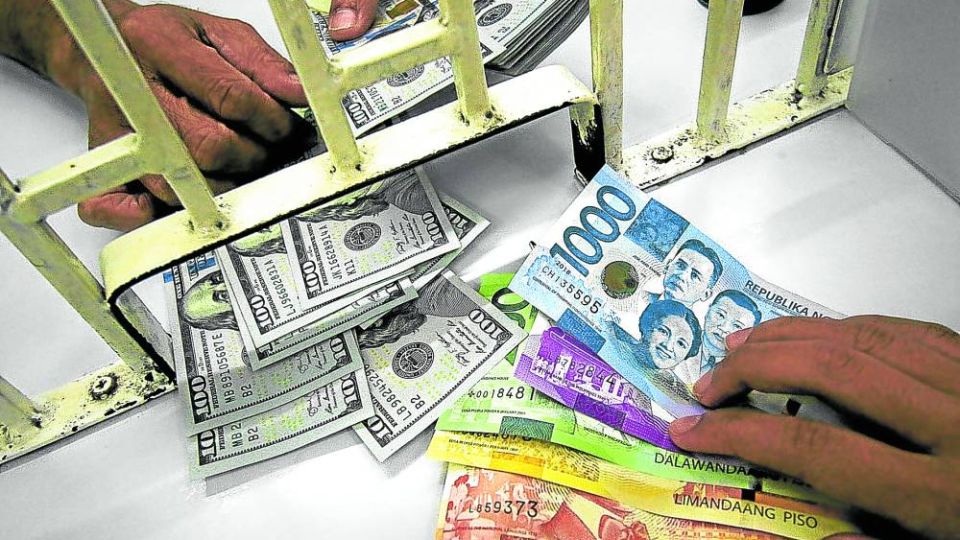August 23, 2022
MANILA, Philippines — The local currency on Monday again went past 56:$1, trading above the threshold all day and closing at 56.21:$1—its weakest position since 56.28:$1 last July 22.
This was the seventh consecutive trading day that the peso depreciated since closing at 55.30:$1 on Aug. 11.
The peso continued to weaken even after the Bangko Sentral ng Pilipinas (BSP) announced an increase in policy rates by 0.5 percentage point, two trading days ago.
Michael Ricafort, chief economist at Rizal Commercial Banking Corp., said this happened amid hawkish signals from the United States Federal Reserve, whose need to fight decades-high inflation supported the strengthening of the US dollar against major global currencies.
The continued depreciation of the peso also happened “amid more dovish [BSP] signals in terms of more gradual local policy rate hikes in the coming months of about 0.25 [ppt] amid further US Fed rate hikes expected,” Ricafort said.
Adding even more pressure for the peso to weaken was the Philippines’ balance of payments that was pegged at a deficit of $1.8 billion in July— the widest in more than two years or since February 2021.
According to Fitch Solutions, the BSP is likely to “remain hawkish” and hike rates further to bring the policy rate to 4.5 percent by the end of the year from 3.75 percent currently. The latest forecast from Fitch is higher than the previous 4.25 percent.
“We expect global monetary conditions to tighten further over the coming months, which will likely exert more depreciatory pressures on the peso,” Fitch Solutions said.
The company said this would then likely prompt the BSP to hike rates further in order to safeguard external stability.
Fitch Solutions expects the US Fed to raise rates by 0.75 ppt more this year, the same for the BSP.
“The US Fed’s hawkish shift since the start of the year has caused the Philippine peso to depreciate sharply against the dollar, by around 10 percent (year-to-date) so far,” it added.


